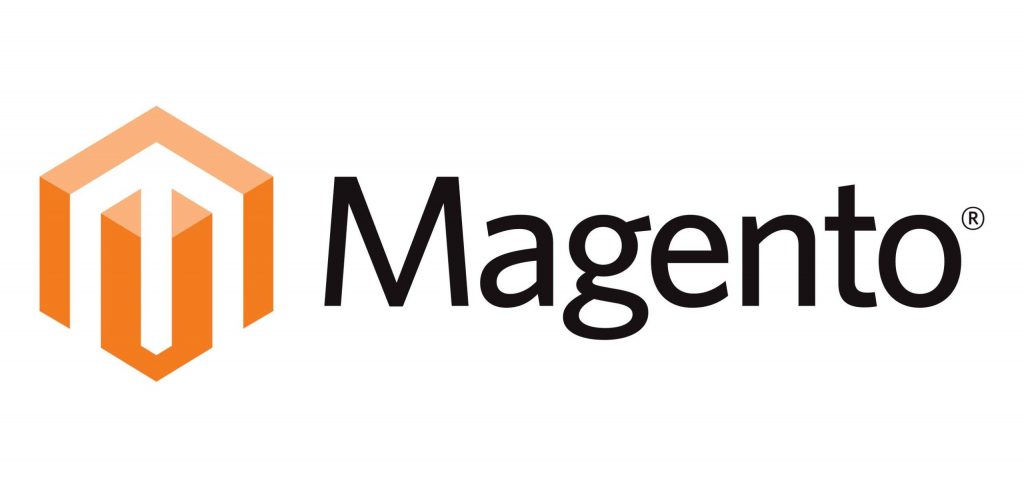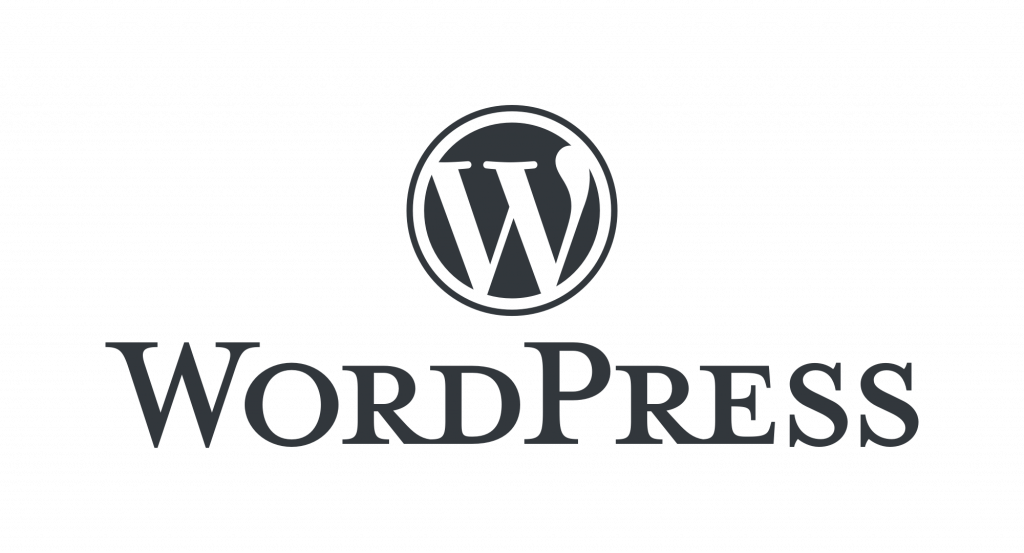WordPress vs Magento
Choosing the right platform for your online store is crucial to your success. Two popular, and quite different options are WordPress and Magento. One is a popular and versatile content management system (CMS), with powerful e-commerce capabilities through WooCommerce, and one is a solely e-commerce-focused platform. In this article, we’ll break down the differences between both platforms, guiding you to choose the right platform depending on your needs and goals.
You’ll also learn about our framework Qala, the best of WordPress, packaged into one solution. Let’s dive into this comparison.

What is Magento?
Magento is an open-source e-commerce platform designed for businesses needing tailored solutions. It handles complex product catalogs, multi-store setups, and integrates with third-party services, making it ideal for global operations.
Since Adobe acquired Magento in 2018, focus has shifted towards Adobe Experience Manager, raising concerns about Magento’s future. While still a robust platform, it’s best for businesses with specific customization needs and the resources to manage technical complexities.
What is WordPress?
Originally just a CMS, WordPress has evolved into a powerful e-commerce platform when paired with WooCommerce. Its flexibility allows businesses of all sizes to create scalable and user-friendly online stores.
With thousands of plugins, WordPress makes it easy to add essential features like payment gateways, inventory management, and SEO optimization, making it ideal for both B2C and B2B operations.

WordPress vs Magento: Overview
Magento
WordPress
Ease of use
Magento: Requires a steep learning curve and technical expertise. Best suited for developers and highly customized stores. Not beginner-friendly.
WordPress: Simple, intuitive block-based editing accessible to all skill levels. Its flexible plugin management and user-friendly admin panel make it easy to customize and maintain your website, ensuring it meets your business needs.
Pricing
Magento Commerce Cloud (Full Suite):
Setup fee: £10,000 – £50,000+
Licensing fees: £1,560 – £3,900/month (or £31,200+/year)
Maintenance: £500 – £5,000+/month
Hosting: Included in Commerce Cloud or £39 – £390/month for Open Source
WordPress with Qala (Pre-packaged Enterprise Solution):
Setup fee: £10,000 – £15,000
Licensing fees: No recurring license fees
Maintenance: From £300/month + project management costs
Hosting: £150 – £250/month
E-commerce
Magento: Built specifically for e-commerce, offering advanced features like multi-store management and extensive reporting, which makes it a good option for large operations.
WordPress: The WooCommerce plugin offers a basic foundation for your e-commerce store, but it lacks key features out of the box. Qala improves this by taking the best out of WordPress and WooCommerce, with features like pre-configured modules and optimized performance, to give you a highly effective and scalable e-commerce platform.
Plugins
Magento: Offers a wide range of extensions, but they are often expensive and require expert installation. Less user-friendly compared to WordPress.
WordPress: Thousands of free and premium plugins are available. Easy to install and manage. Qala includes essential plugins pre-integrated for convenience.
SEO
Magento: Strong SEO tools with significant control over URLs and metadata, but often requires technical knowledge.
WordPress: Excellent SEO capabilities with plugins like Yoast, easy to manage even for beginners.
Security
Magento: Known for strong security with regular updates, but managing it can be complex and requires prompt attention to updates.
WordPress: Generally secure, especially with regular updates and the right plugins.
B2B
Magento: B2B features like custom pricing, bulk ordering, and advanced account management tools, making it a strong fit for businesses with complex procurement processes and large-scale operations.
WordPress: Qala strengthens WordPress for B2B by providing flexible content management, multi-user account management, and customized workflows, ideal for businesses that prioritize strong customer relationships and need adaptable solutions for managing content and communication.
International stores
Magento: Strong support for global operations with multi-currency and regional management, but requires significant expertise.
WordPress: Out of the box, WordPress paired with WooCommerce is limited when it comes to global operations. Qala eliminates these limitations with improved global selling capabilities, offering effective multi-currency and regional solutions.
Short summary
Magento key features
- Advanced customization
- Multi-store management
- Scalability
- Wide extension marketplace
Magento is ideal for medium to large businesses with complex e-commerce needs, offering customization, multi-store management, and bulk ordering. However, it requires technical expertise, and since Adobe’s acquisition, concerns have been raised about its long-term focus. It also lacks the strong content management features of WordPress.
WordPress key features
- User-friendly interface
- WooCommerce integration
- Extensive selection of plugins
- Content management
- Scalability
- Flexibility
WordPress, the world’s leading CMS, is user-friendly and versatile. Paired with WooCommerce, it’s a powerful choice that combines essential e-commerce features with an easy-to-use, flexible interface.
Qala improves WordPress by providing the power and flexibility needed for enterprise businesses, especially in B2B, that need a scalable, user-friendly solution.
Ease of use
WordPress
WordPress is designed for user-friendliness, making it easy for users of all levels to manage and update websites. Its intuitive interface and extensive documentation ensure accessibility, even for those without technical expertise. Adding content, managing plugins, and customizing themes is straightforward.
Qala enhances WordPress with pre-configured modules tailored to your needs, streamlining workflows, and removing unnecessary components. This reduces the learning curve, allowing you to focus on content and business growth instead of technical details.
Magento
Magento provides powerful customization but has a steep learning curve. It’s designed for developers and businesses needing deep flexibility. Non-technical users often find Magento challenging, as even minor updates may require developer support, making management more demanding than WordPress. The extensive backend configuration options can also be overwhelming without prior experience.
WordPress, especially with Qala, is far more user-friendly and accessible to non-technical users, making day-to-day management a lot easier. Magento is powerful but requires significant technical expertise, making it less suitable for those without a dedicated development team.
International stores
WordPress
WordPress’s e-commerce plugin WooCommerce, while powerful, has limited out-of-the-box support for multiple currencies. This limitation can be challenging for global operations that need seamless currency management across different regions.
Qala addresses WooCommerce’s multi-currency limitations with proprietary solutions that improve multi-currency support. For businesses that need to manage currencies across various markets, Qala offers a more flexible approach by allowing the instantiation of each market with its own currency and language, making it a strong contender for businesses with specific regional needs.
While Qala improves WooCommerce’s global selling capabilities, our Pimcore WooCommerce integration takes it a step further. It centralizes product data management and ensures consistency across multiple regions and currencies, making it easier to manage numerous international stores without the complexity often associated with global operations.
Magento
Magento excels in environments that require support for multiple currencies without the need for separate instances for each country or region. This feature makes it ideal for global shops that need to manage various currencies under one store.
- Global shops with multiple currencies: Magento is better suited for businesses that need to manage multiple currencies under a single global store without instantiation.
- Localized shops with separate markets: WordPress with Qala is ideal for businesses that operate in multiple regions with distinct currencies and languages, offering a more manageable and customizable solution.


Pricing
WordPress
WordPress is free, and while premium themes, plugins, and hosting incur costs, it generally remains an affordable option. Users can scale costs according to their needs, making it a flexible solution for various budgets.
Qala optimizes cost-effectiveness by bundling essential features and providing an all-in-one solution, reducing the need for multiple third-party plugins and minimizing maintenance costs. This bundled approach results in more predictable costs when scaling.
WordPress with Qala (Pre-packaged Enterprise Solution):
- Setup fee: £10,000 – £15,000
- Licensing fees: No recurring license fees
- Maintenance: From £300/month + project management costs
- Hosting: £150 – £250/month
Magento
Magento’s cost structure can be high, especially when considering the need for custom development, premium extensions, and hosting. The enterprise version, Magento Commerce Cloud, involves substantial licensing fees, making it a significant investment.
Magento Commerce Cloud (Full Suite):
- Setup fee: £10,000 – £50,000+
- Licensing fees: £1,560 – £3,900/month (or £31,200+/year)
- Maintenance: £500 – £5,000+/month
- Hosting: Included in Commerce Cloud or £39 – £390/month for Open Source
WordPress, particularly with Qala, offers a more predictable and cost-effective solution, while Magento can become quite expensive, especially for larger businesses requiring custom features.
E-commerce
WordPress
WordPress, through WooCommerce, provides essential e-commerce functionality like product management, payment gateways, and inventory tracking. With Qala, WordPress’s e-commerce capabilities are elevated, featuring optimized performance, streamlined checkouts, and enhanced product management.
The introduction of High-Performance Order Storage (HPOS) makes WooCommerce competitive with Magento for handling high transaction volumes.
For businesses that require advanced data management, our Pimcore WooCommerce integration is a great addition. It’s specifically tailored for WooCommerce, offering centralized data management for all your product information, seamless scalability to handle expanding catalogs and markets, and a future-proof design that will support upcoming enhancements like bi-directional syncing. It’s an ideal choice for large WooCommerce stores looking to optimize their e-commerce operations.
Magento
Magento is purpose-built for e-commerce, offering robust features like multi-store management, complex product configurations, and customer segmentation. It’s scalable for large businesses with high transaction volumes and extensive SKUs, making it ideal for complex e-commerce operations.
WordPress with WooCommerce and Qala matches Magento in performance while offering superior ease of use. Magento remains a strong option for complex e-commerce needs, but requires more technical resources.

Plugins
WordPress
WordPress offers a wide range of plugins, with thousands available to extend functionality. The ease of installing and managing these plugins makes it a highly flexible platform. However, the use of too many plugins can sometimes lead to conflicts and slow performance.
Qala addresses these issues by pre-integrating essential plugins, ensuring compatibility, and optimizing performance. This reduces the risk of conflicts and bloat, providing a more stable and efficient website.
Magento
Magento’s extension marketplace offers a wide range of options to improve functionality, including integrations for payment gateways, shipping providers, and marketing tools.
It’s important to note that some Magento extensions may require ongoing updates and maintenance to ensure compatibility with the core platform, which can add to the overall cost and complexity of managing a Magento store.
WordPress’s plugin ecosystem is vast and flexible, with Qala optimizing for performance and stability. Magento offers powerful extensions but requires more technical management and often higher costs.
SEO
WordPress
WordPress is inherently SEO-friendly, with a clean codebase and access to powerful SEO plugins like Yoast. Users can easily manage SEO settings, optimize content, and improve site visibility without needing extensive knowledge.
Qala further improves WordPress’s SEO capabilities by providing pre-configured SEO settings and optimized site structures, ensuring that your site is search engine-friendly from the start.
Magento
Magento provides robust SEO tools that offer detailed control over site elements like URLs, metadata, and sitemaps. However, leveraging these tools often requires more experience and a deeper understanding of SEO. Magento’s ability to handle large product catalogs also necessitates careful management of duplicate content and page navigation issues to avoid affecting your SEO.
Magento supports rich snippets and customizable URL structures, which can improve search visibility.
WordPress with Qala makes managing SEO and optimizing content easy. You get access to an unlimited supply of SEO tools and plugins, making the SEO work simple and clear. Magento also offers strong SEO features and provides you with everything you need out of the box.

Security
WordPress
WordPress is secure when regularly updated and supplemented with strong security plugins. Its large user base makes it a frequent target for attacks, making proactive security measures essential.
Qala strengthens WordPress security with automatic core and plugin updates, firewall configurations, and regular security audits to safeguard against vulnerabilities. This ensures that security is maintained without requiring extensive technical intervention.
Magento
Magento offers strong security features, including PCI DSS compliance, which is critical for handling sensitive payment data. However, managing Magento’s security can be complex and often requires technical expertise to apply regular updates, patch vulnerabilities, and implement custom security configurations.
WordPress with Qala provides robust, user-friendly security with minimal technical involvement, while Magento offers strong security but requires more technical oversight to manage updates and maintain strong protection.
B2B
WordPress
WordPress is a strong contender for B2B businesses, particularly when it comes to content management and structure thanks to its intuitive block-based editing. Its flexibility allows businesses to create tailored content for their potential customers, including detailed product catalogs, tailored content pages, and lead-generation forms. With the right plugins, WordPress supports B2B features such as customer-specific pricing, quote requests, and more.
Qala improves WordPress for B2B by integrating advanced features such as customizable pricing, bulk ordering options, and improved account management. This makes it a competitive option for businesses needing B2B capabilities without moving away from the customizable and effective WordPress environment.
Magento
Magento is highly regarded in the B2B space due to its robust out-of-the-box features tailored for business customers. These include custom pricing tiers, comprehensive bulk order management, and sophisticated account management tools. Magento also supports complex B2B operations like contract-based pricing, customer segmentation, and request-for-quote workflows.
Magento’s API-driven architecture allows seamless integration with ERP and CRM systems, improving overall business efficiency.
WordPress with Qala is highly flexible and effective for B2B, offering advanced sales features combined with a user-friendly, block-based editor. While Magento provides B2B features for complex operations, it’s not as user-friendly for content management and structuring.

WordPress vs Magento: Conclusion
We’ve compared Magento and WordPress across various aspects like ease of use, security, scalability, and cost. Both platforms have their strengths, but which one is right for your business?
Magento: Magento is best suited for businesses with complex, highly customized requirements and the technical resources to manage ongoing challenges. But, running a Magento store requires significant investments in development and maintenance.
WordPress: WordPress is the ideal option for businesses seeking a powerful, flexible solution that’s easy to manage. Regardless if you’re looking to build a stable and scalable website or an effective e-commerce store, with WordPress as your foundation both is possible. With Qala, all of WordPress’s weaknesses are improved, making it a highly effective and scalable option, no matter your business goals.
If you are interested in learning more about how Angry Creative can help your company with your WordPress site, fill out the form below and get in touch!